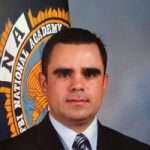By Dr. Jarrod Sadulski, Faculty Member, Criminal Justice, American Military University and Major Efren Munoz, Criminal Investigation Directorate and INTERPOL, National Police of Colombia
For many years, Venezuela has been a major player in the cocaine trafficking industry. Drug growers use production zones in Northern Colombia to produce cocaine, which is then transported over land to Venezuela.
[Related: The Failing Battle Against Drug Production in Colombia]
A lack of border control plagues the 1,400-mile border between Colombia and Venezuela. Once in Venezuela, drug traffickers ship the cocaine from the Zulia region to locations in Central America such as Guatemala, Belize, Honduras, and in some cases the Caribbean.
Cocaine Traffickers Exploiting the Border Dispute between Belize and Guatemala
Belize and Guatemala have a long-term dispute over where the border exists between these two nations. As a result of this dispute, drug traffickers have exploited this area and are suspected of owning land where the land dispute exists, making enforcement by either nation difficult.
[Related: Behind the Scenes of Colombia’s War on Drug Trafficking]
Belize has also seen an increase in unauthorized light aircraft arrivals; these aircraft have landed under suspicious circumstances along the northern part of the nation near the border with Mexico. For instance, several planes in the past year have landed at night along remote highways in Belize and have been abandoned; they are suspected to have transported cocaine from Venezuela. For cocaine trafficked through Central America, it is typically transported to the United States through Mexico.
[Related: Narcotics and the Human Trafficking Problem in Belize]
The Zulia region of Venezuela is particularly susceptible to being a transshipment point, because it is located in the northwestern area of Venezuela and is mostly underdeveloped. As a result, Venezuelan police forces are limited in their ability to control drug trafficking, and cocaine easily flows between Colombia and Venezuela.
Cocaine Transportation Routes in Venezuela
There are four major legal and controlled road crossings between Colombia and Venezuela: Maicao-Maracaibo, Cúcuta-San Cristóbal, Arauca-El Amparo, and Puerto Carreño-Puerto Paez. Aside from these road crossings, drug traffickers transport cocaine into Venezuela via river crossings and hundreds of illegal paths and underpopulated areas along the border. In 2018, a U.S. official estimated that 240 metric tons of cocaine were delivered from Colombia into Venezuela, according to CNN.
In addition, the territory of the northern part of Colombia and Venezuela shares the Wayuu indigenous ethnic group, a community that has inhabited this region for thousands of years. By law, its members are authorized to cross the border without any type of control by authorities.
This situation is exploited by drug traffickers who instigate indigenous people to transport cocaine between both countries. Under the motivation of earning money, traffickers also involve the Wayuu in their criminal organizations as drug mules.
Colombian National Police Partnering with Venezuela Police to Stop Drug Trafficking
For almost two years, Colombian National Police Major Efren Muñoz worked in the north area of Colombia. His work involved investigating, chasing and arresting criminal organization members related to international drug trafficking, extortions, and homicides. From February 2011 until August 2012, he led a Special Investigation Team placed in the Riohacha, La Guajira department in Colombia.
After a deep criminal investigation process, Muñoz and his team achieved the dismantling of the criminal organization Alta Guajira, dedicated to the international traffic of cocaine from Colombia and Venezuela towards the United States. During this police operation, its two main leaders (known by the aliases of Cobra and Pantera) were arrested. Also, law enforcement officials confiscated:
- Eight M-14 and FAL rifles
- 12 IM-26 fragmentation grenades
- 22 40-mm grenades
- Seven 60-mm mortars
- 4,807 5.56mm-caliber cartridges
- 162 rifle magazines
- 3,200 kilograms of marijuana
Also, Major Muñoz and his team arrested Miguel Antonio Partidas Morell (alias “El Catire”), who was a member of the criminal organization Los Rastrojos and a coordinator of drug trafficking routes from Colombia to Venezuela. In addition, INTERPOL wanted Morell under a red notice for the murder of the national anti-drug attorney in the State of Falcón, Venezuela. Cases like these demonstrate the close relationship that Venezuelan and Colombian criminal organizations have had for years.
Venezuela Has Plenty of Internal Problems
Venezuela experienced a substantial amount of turmoil in recent years, involving a substantial humanitarian, economic, and political crisis. For instance, Venezuela has had consistent shortages of food and medicines, in addition to human rights violations and government instability.
There is a bitter power struggle between National Assembly leader Juan Guaido and Venezuelan president Nicolas Maduro, with both declaring that they are president of Venezuela. This turmoil, coupled with years of allegations that high-ranking Venezuelan government officials are complicit in drug trafficking, has brought Venezuela into the spotlight as a major player in the drug trafficking trade. In addition, Maduro’s military have been accused of being involved in drug trafficking with Colombian leftist guerrilla group Ejército de Liberación Nacional (ELN).
On March 26, 2020, the United States government announced that Venezuela’s president Maduro is being charged with charges associated with conspiracy to commit narco-terrorism. A $15 million reward has been offered for information leading to the capture of President Maduro.
The U.S. government also announced that there are additional indictments involving several high-ranking co-conspirators associated with President Maduro. For example, the United States has accused Venezuela’s chief justice of money laundering and bribery and has accused the head of the nation’s military of additional drug trafficking charges.
The United States and over 100 countries no longer recognize Maduro as the president of Venezuela. How much that decision will impact drug trafficking from Venezuela remains to be seen.
About the Authors:



Comments are closed.